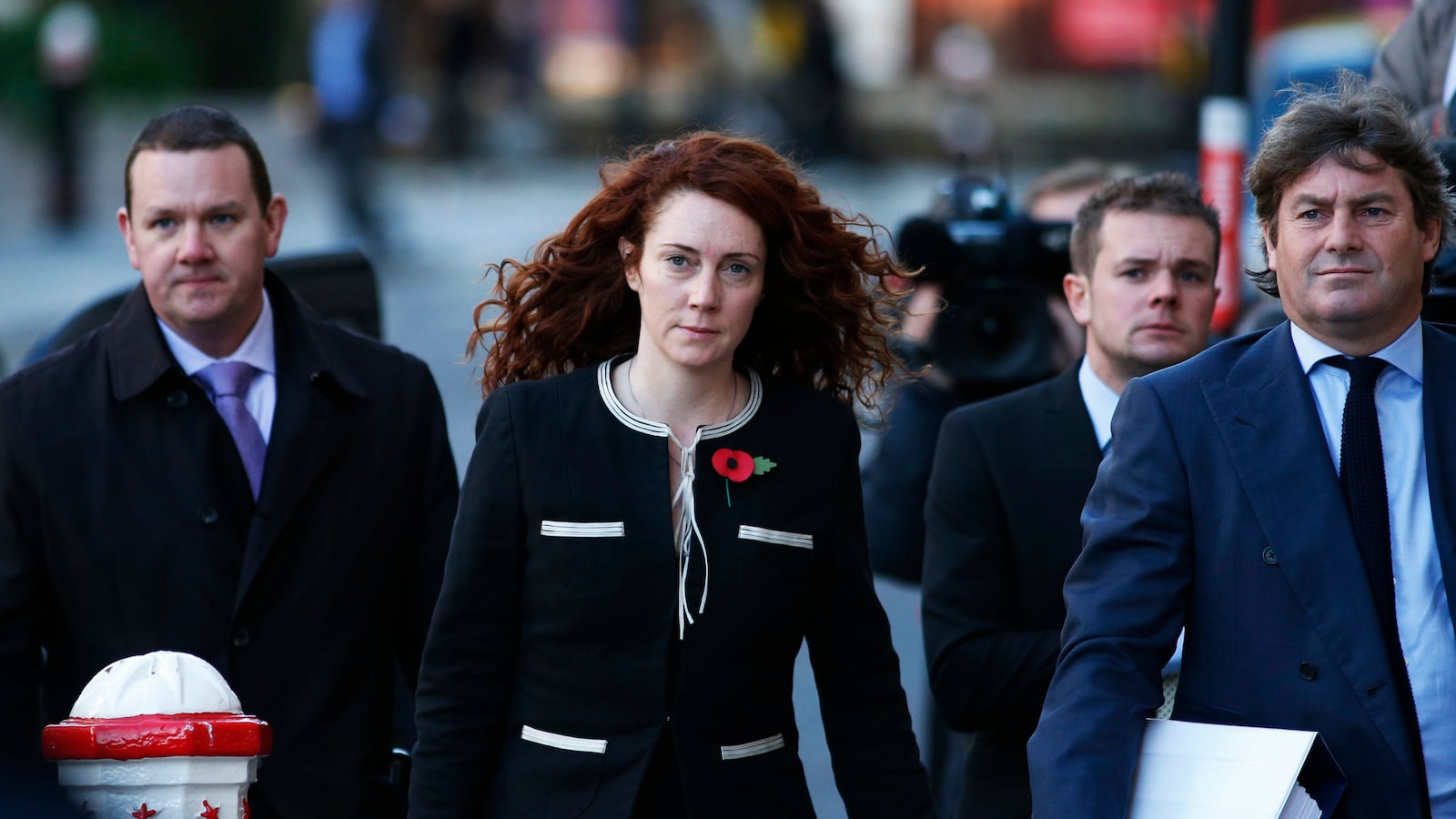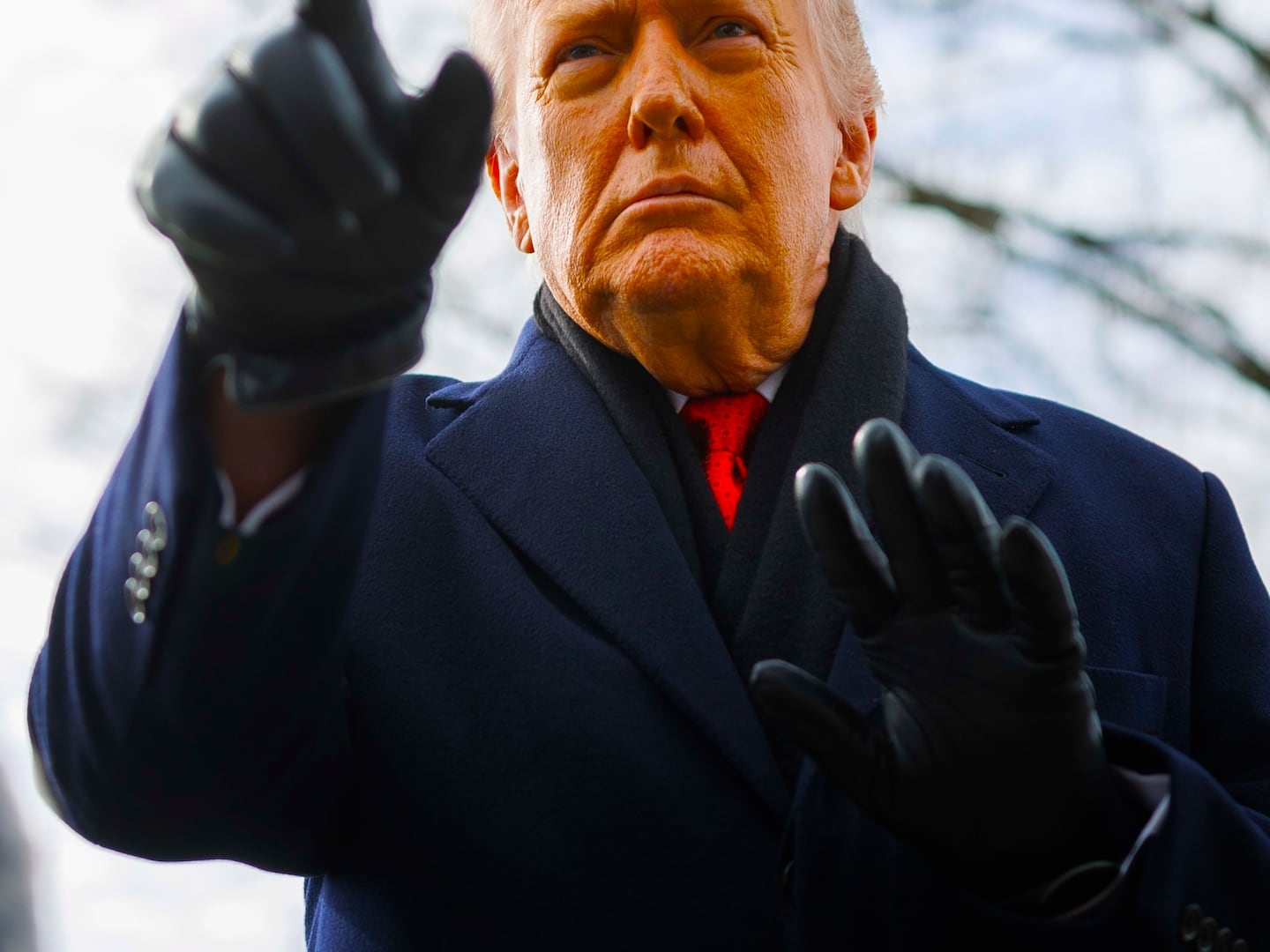Three senior editors from Rupert Murdoch’s biggest-selling newspaper, the now defunct News of the World, have admitted taking part in a criminal conspiracy to hack into the private phone messages of senior politicians, members of the royal family, victims of crime and movie stars.

The admissions prove for the first time that phone hacking was widespread at the heart of the Murdoch media empire. The guilty pleas, which were entered by former staff earlier this year, could not be reported until today, when the trial of Rebekah Brooks and seven other defendants opened in London.
The multiple confessions from three news editors at News of the World finally explode protestations that there was a ‘rogue reporter’ operating inside the organization. That was the claim made by the paper and its parent company News International after their royal reporter, Clive Goodman, was convicted of phone hacking in 2006. “This is proof of a conspiracy,” said Andrew Edis, the prosecuting lawyer.
The prosecution alleged on Wednesday that this was just a snapshot of a wider “substantial conspiracy” that reached into the highest echelons at News International, the British arm of Murdoch’s News Corp. Edis said three different criminal enterprises had been prevalent at the News of the World: phone hacking against people like Paul McCarney, Sienna Miller and Jude Law; paying public officials for information; and a huge cover-up once the police began to investigate what was going on.
Edis said Brooks, a close friend of British prime minister David Cameron and confidant of Rupert Murdoch, was at the center of the illegal practices. “Phone hacking started when Brooks took over as editor [of the News of the World] and continued when Coulson took over,” he said. He claimed Brooks and her personal assistant had hidden a series of notebooks from the police when officers began to investigate. Those documents have never been found. “They have disappeared. We will not know what those notebooks contained because they are gone,” he said.
There was a plethora of evidence at the home of Glenn Mulcaire, however, a private investigator who, the prosecution claims, was paid more than $150,000 a year by the newspaper. Tape recordings and notes found at his house indicated that he had hacked hundreds of phones for the News of the World, said Edis.
“Though they were giving Mulcaire £100,000 a year, there is very little paperwork on what News of the World were paying him for,” Edis said. “Records are conspicuously silent about what they were getting for their money… All I need to tell you now is that there really is a lot of material of recorded voicemails recovered from Mulcaire.”
Muclaire was sentenced to hacking the phones of aides to Prince William and Prince Harry in 2007. It can be reported today that he admitted four other charges linked to the News of the World, earlier this year, including accessing the phone of Milly Dowler, a missing teenager who was later found to have been murdered.
The prosecution claims evidence gathered from Mulcaire’s home and his testimony will be pivotal in a trial of eight defendants that began at the Old Bailey this week. Brooks is joined in the dock by Andy Coulson, who succeeded her as editor of the News of the World, her husband, who is accused of trying to cover up her crimes, and five other members of News International staff.
One of the charges leveled against Brooks is that she approved more than $60,000 in payments to Bettina Jordan Barber, “a highly placed Ministry of Defense official… with developed vetting, which is the highest level of security clearance.”
Edis said: “Over a long period of time Bettina Jordan Barber sold a lot of information for a considerable amount of money.”
The prosecution was careful to differentiate the likes of Barber from whistleblowers who might speak to the media in order to expose a dishonesty or government corruption. These are public officials accused of taking money in order to pass information to tabloid newspapers, the prosecution said.
“This prosecution is not an attack on freedom on the press,” Edis said. “But journalists are no more entitled to break the law than anyone else.”
Edis referred to previous guilty pleas which media outlets were not previously allowed to report, under British law, in case they jeopardized the chance of a fair trial in this case. He said three senior staff at the now shuttered Sunday tabloid had already pleaded guilty to a variety of charges including the conspiracy to intercept voicemail messages from a list of 600 people.
Those three pleas were entered by Neville Thurlbeck, formerly news editor and then chief reporter at the News of the World, and two other former News of the World news editors Greg Miskiw and James Weatherup. They pleaded guilty to “count one”, conspiracy to hack phones.
Edis closed the first section of his opening statement, which will continue tomorrow by claiming that there was ample evidence of a widespread conspiracy. “Perhaps this evening I can leave you with a single thought,” he said. “How much did much did the management know what was going on their newspapers? The News of the World was a Sunday paper. It was published once a week. It wasn’t War and Peace. It wasn’t an enormous document.. the management’s job to know what was in the paper.”
The trial continues.







